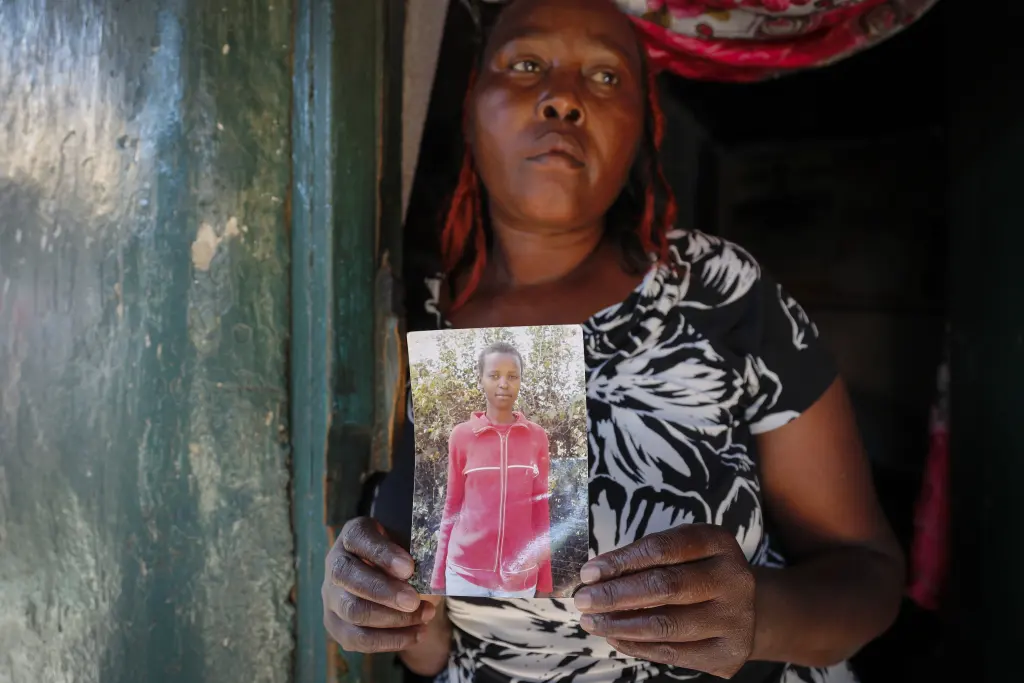IMF tells African oil exporters to diversify economies to boost ‘subdued’ growth, address poverty
While diversified economies such as Senegal and Tanzania are expected to grow at above the regional average, Nigeria will fall short, growing at 2.9 per cent, according to the IMF’s regional economic outlook for Sub-Saharan Africa launched on Friday.
Kenyan court suspends $736m Adani electricity deal it calls ‘a constitutional sham tainted with secrecy
The Adani Group, founded by Indian billionaire Gautam Adani, sparked anger in Kenya recently for another proposed public-private partnership project to lease the country’s main airport for 30 years in exchange for expanding it.
Uganda, Kenyan currencies hold steady while Ghana and Nigeria’s may weaken against dollar
Ghana’s cedi could weaken further on seasonal demand for dollars, as companies in the commerce and manufacturing sectors stock up ahead of the festive period.
Central Bank of Kenya governor says East African biggest economy has fulfilled targets in IMF review
Inflation was set to decline below the 3.6 per cent annual rate recorded in September, he said, adding that the country’s FX reserves currently stood at $8.6 billion, representing 4.3 months’ worth of imports. The central bank had said earlier in October that reserves stood at $8.25 billion.
Guilty as charged: Court rules Billionaire Bill Gates can stand trial in Netherlands in Covid vaccine injury lawsuit
According to Dutch independent news outlet Zebra Inspiratie, the plaintiffs allege that Bill Gates, through his representatives, deliberately misled them about the safety of the Covid-19 shots, despite knowing “that these injections were not safe and effective.”
As Sudan burns foreign powers, including UAE, reap big from precious minerals and agriculture
Gold has been one of the main drivers of the Sudan conflict. It allows both parties to fuel their war machines. The UAE is the main beneficiary of this trade. It receives nearly all the gold smuggled from Sudan and has become a hub for laundering trafficked gold into the global market. The latest available statistics show that, officially, the UAE imported precious metals from Sudan valued at about $2.3 billion in 2022.
IMF, World Bank worried about looming liquidity shortfall that’ll hurt many emerging economies
The US Treasury’s top economic diplomat has called for new ways to provide short-term liquidity support to low- and middle-income countries to head off debt crises.
Rwanda accused of trying to shrug off ‘sportswashing’ by touting economic outcomes
Rwanda President Paul Kagame has built a close working relationship with Gianni Infantino, the president of FIFA, which has opened an office in Rwanda and held its annual meeting there last year. Now he is taking the biggest step yet in his ambition to transform the country into a global sporting power, with F1 executives confirming that they are in exploratory talks with Kagame’s government about a possible Rwandan Grand Prix.
Debt-ridden Zimbabwe to compensate white farmers who lost land in seizures 20 years ago
In this file photo dated March 29, 2000, Pippa van Rechteren, left, and her two-year-old twins Catherine, second from left, and Elisabeth (third from left) are blocked from leaving their house on the white-owned commercial farm, Chiripiro, by Zimbabwe war veterans in Centenary district, 150 kilometers (93 miles) north of Harare, Zimbabwe. Credit: AP
Deadly anti-depressants: Doctors ignore findings that the drugs work less by treating illness, more by changing personality
Eli Lilly, the manufacturer of Prozac, confirmed the drug had been blamed in over 75 criminal cases. The drugmaker said it was unaware of any cases in which the defence had succeeded. That’s precisely the problem, according to Healy. Today, nearly 20 years after Pittman’s case, no jury has acquitted a person who claimed antidepressants caused them to commit a murder.
















